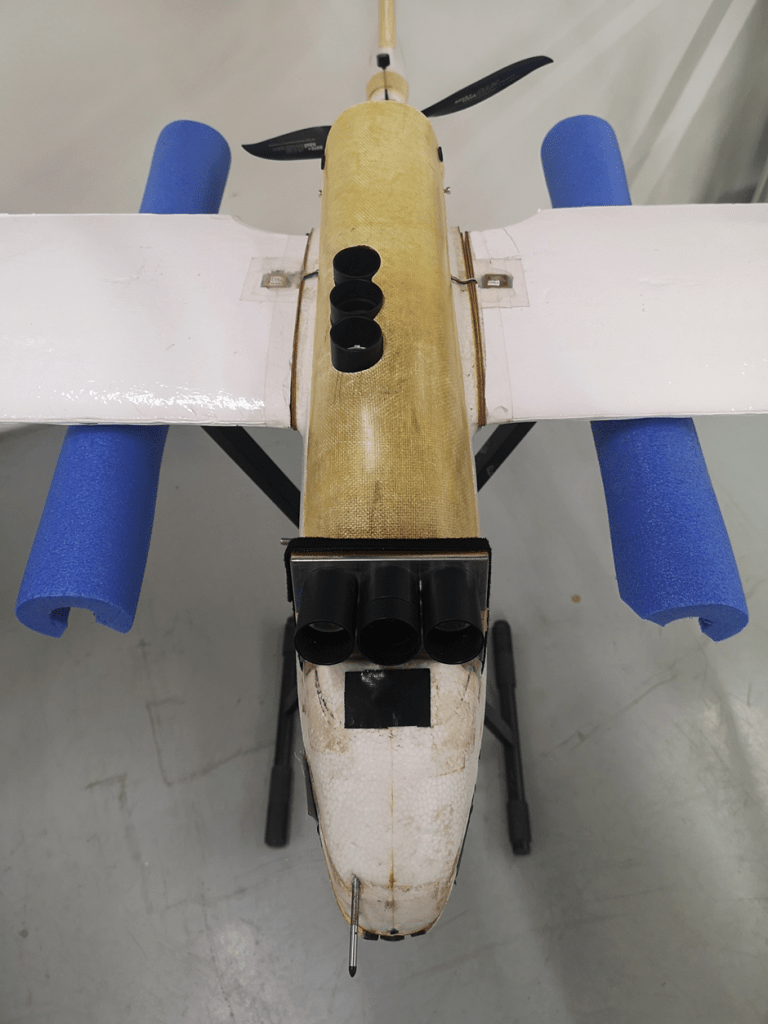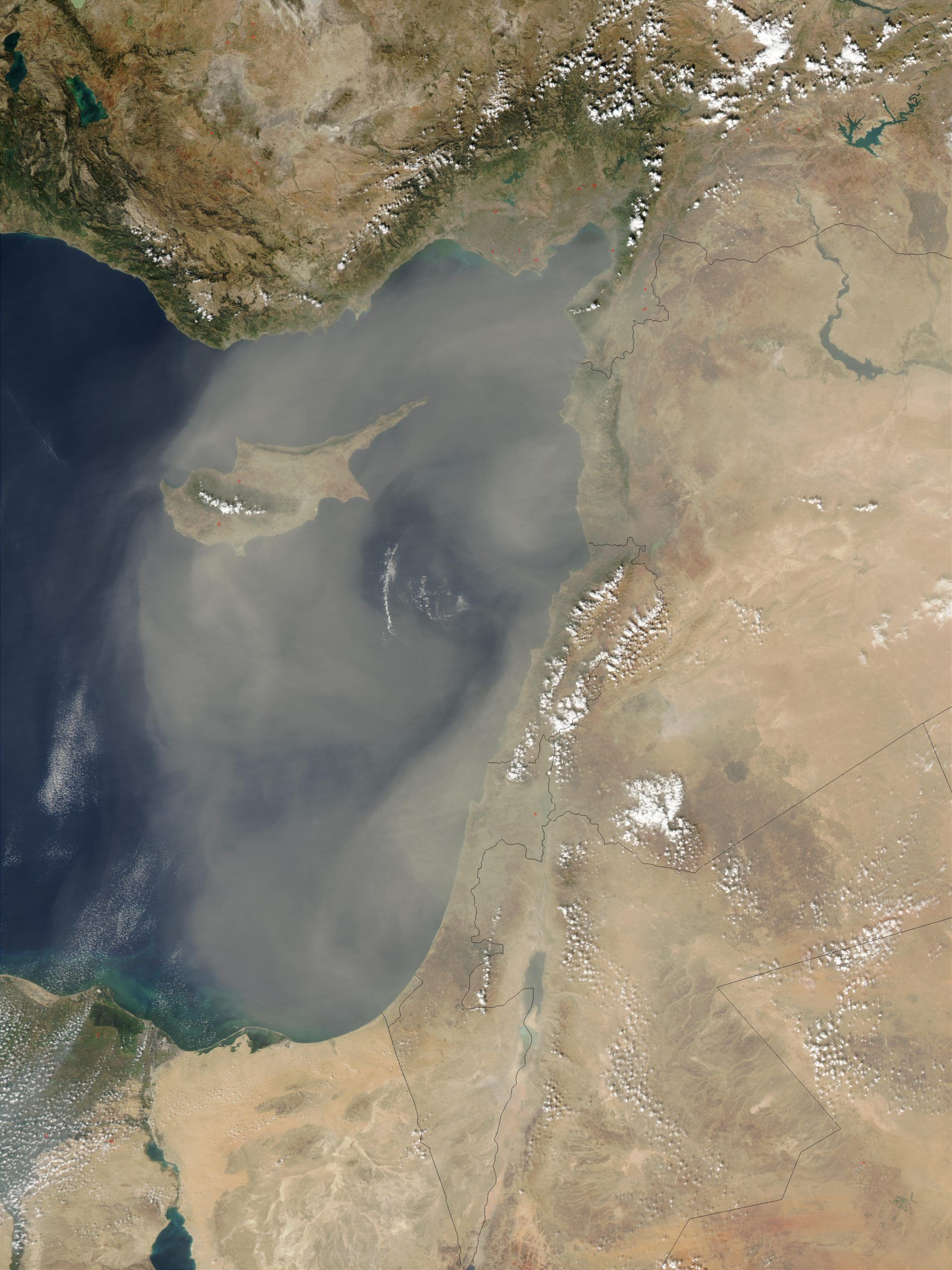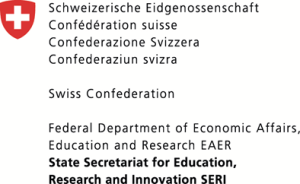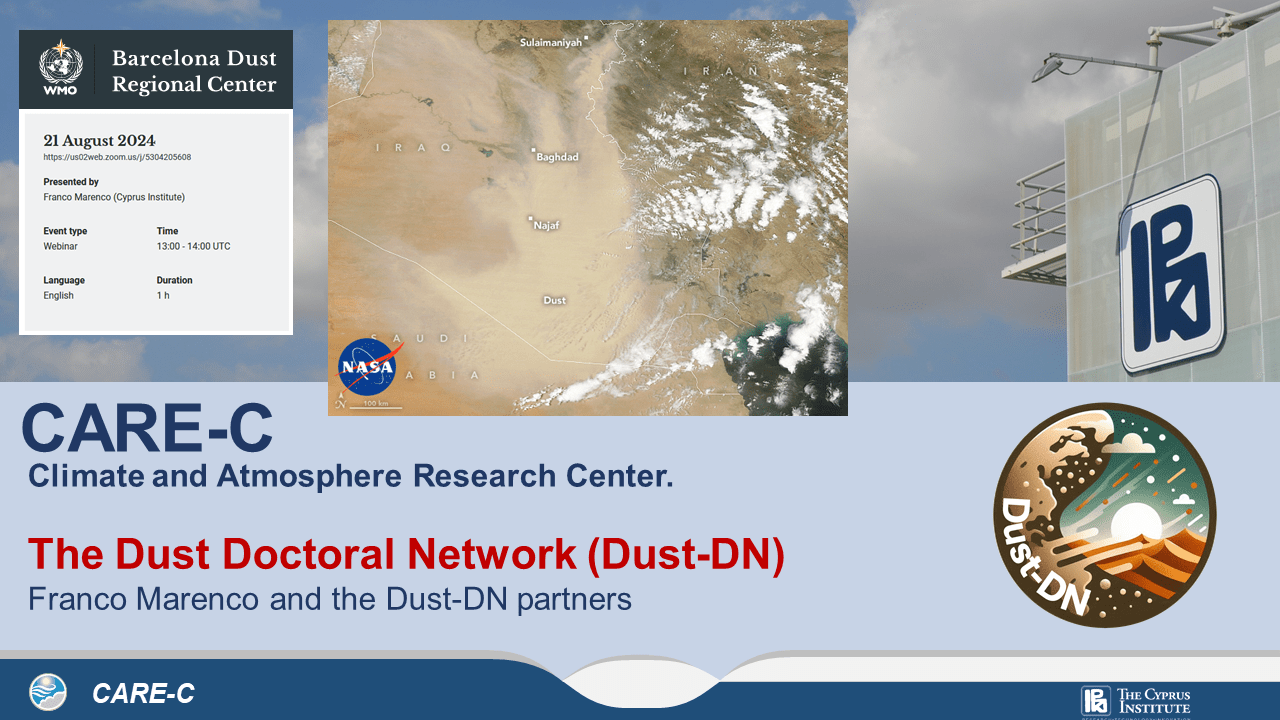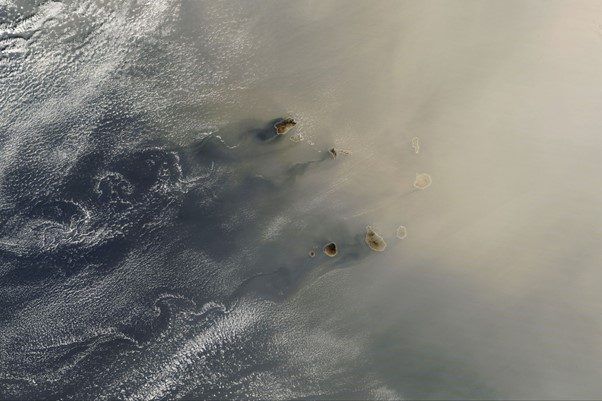When Dust Reaches the Skies: Understanding Its Impact on Aircraft Engines
Blog post from Sai Amritha Kuttippurath
When we think about dust, we usually imagine sandy winds, hazy horizons, or the thin layer that mysteriously reappears on clean surfaces. In the atmosphere, however, this dust is often composed of mineral particles lifted from dry and arid regions, known as mineral dust. Unlike the dust we see settling on surfaces, mineral dust does not remain close to the ground. Once lifted into the atmosphere, it can affect aircraft engines, especially during take-off and landing phases. At these heights, these tiny mineral particles are far from harmless for aircraft engines. However, this impact does not generally pose an immediate operational safety risk; instead, prolonged exposure to dust contributes to long-term engine degradation and increased maintenance and servicing requirements. Although mineral dust may seem like a minor component of the atmosphere, its impacts extend well beyond visibility or air quality.
Through my PhD, I examine how mineral dust influences aircraft engine performance, particularly in the Middle East. I joined the Dust-DN network on 30 June 2025 as a doctoral candidate at the University of Reading, UK. My project (DC5), “The impact of mineral dust on aircraft engines in the Middle East”, focuses on understanding the risks posed by airborne dust to aviation operations in dust-prone environments. The University of Reading has been an excellent choice for pursuing this research, offering a strong scientific community and a supportive research environment. I am supervised by Claire Ryder and Helen Dacre, with co-supervision from Rory Clarkson (formerly at Rolls-Royce, now at the University of Manchester).
A key part of my research is understanding how dust is distributed at different heights in the atmosphere. This is important because aircraft engines are exposed to dust not only near the ground, but also at higher altitudes during take-off, climb, and cruise. At the current stage of my PhD, I use ceilometer measurements from Abu Dhabi to study how dust changes with height and time. In particular, I am analysing backscatter and extinction coefficients to characterise the vertical structure of dust layers and their temporal evolution.
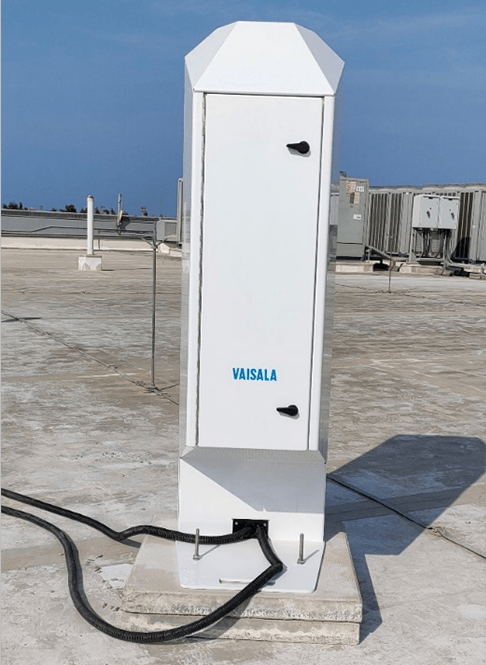
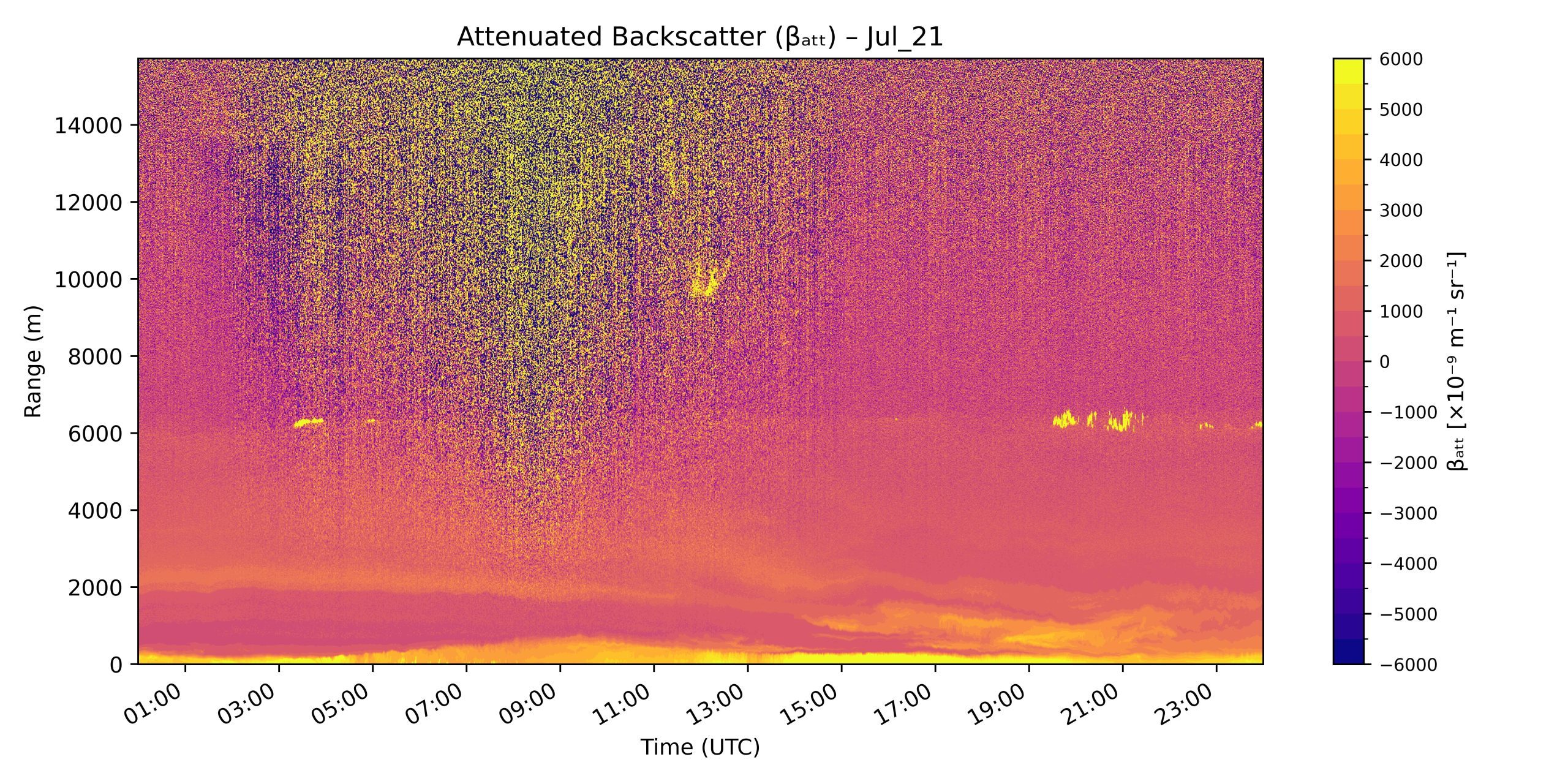
In the next stage of my research, I will focus on calculating the dust dose in the atmosphere, which corresponds to the actual amount of dust ingested by aircraft engines during flight. Alongside this, I will combine ground-based measurements, satellite observations, and weather model forecasts to assess when and where dust may pose a risk to aviation. Ultimately, this work will contribute to the development of dust hazard maps that clearly highlight hazardous conditions and help support safer flight operations and better support for engine maintenance planning.
My PhD includes several secondments that help link my research to real-world applications. My first secondment took place at Rolls-Royce in November 2025, where I developed a clearer understanding of how aircraft engines work and how even very small dust particles can affect engine performance and durability. Through discussions with the Engine Environmental Protection (EEP) team, I was able to see how my research connects directly to practical engineering challenges. I also attended a one-day Holistic Gas Turbine course which helped me better understand engine components and their operation. Together, these experiences improved my understanding of how mineral dust can create problems for aircraft engines in real operating conditions.
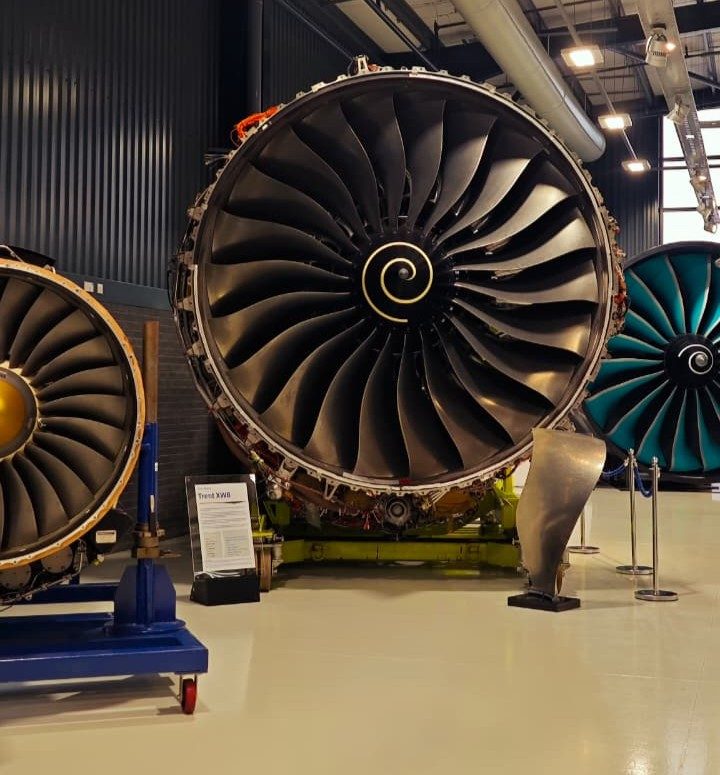
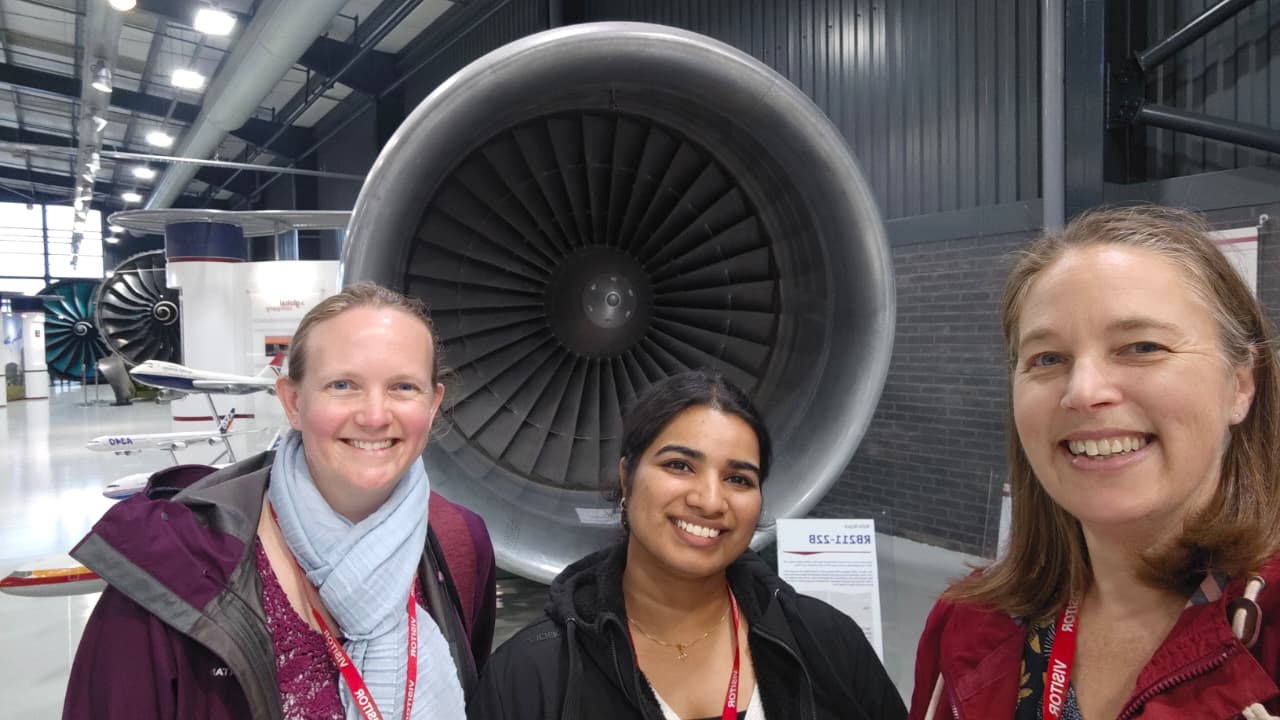
Further secondments are planned at Khalifa University, the National Observatory of Athens, the UK Met Office in Exeter, and the Barcelona Supercomputing Center in Spain. These secondments will provide valuable opportunities to collaborate closely with leading experts and institutes, while also allowing me to gain experience across different areas of atmospheric science. They also provide experience in both academic and industrial research environments, helping to strengthen my research and broaden my perspective.
Being part of the Dust-DN network has given me valuable opportunities for training, collaboration, and knowledge exchange, allowing me to learn from researchers working across different areas of dust science. I am especially looking forward to presenting my work at the upcoming Dust-DN conference in Cyprus in April 2026, which will be a great opportunity to share my research and receive feedback from the wider community. Through my PhD research, I hope to contribute to safer aviation operations and to generate knowledge that benefits both industry and society.















